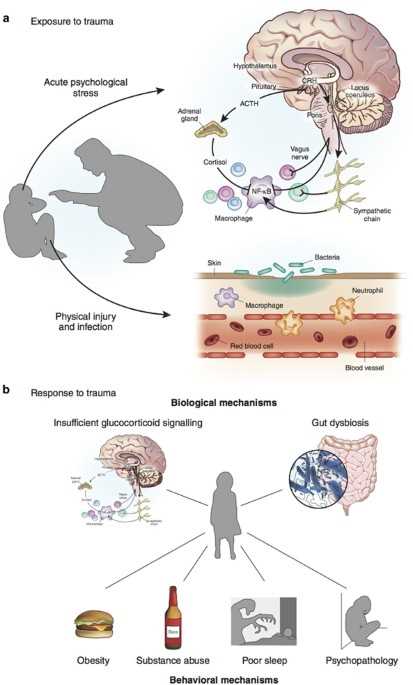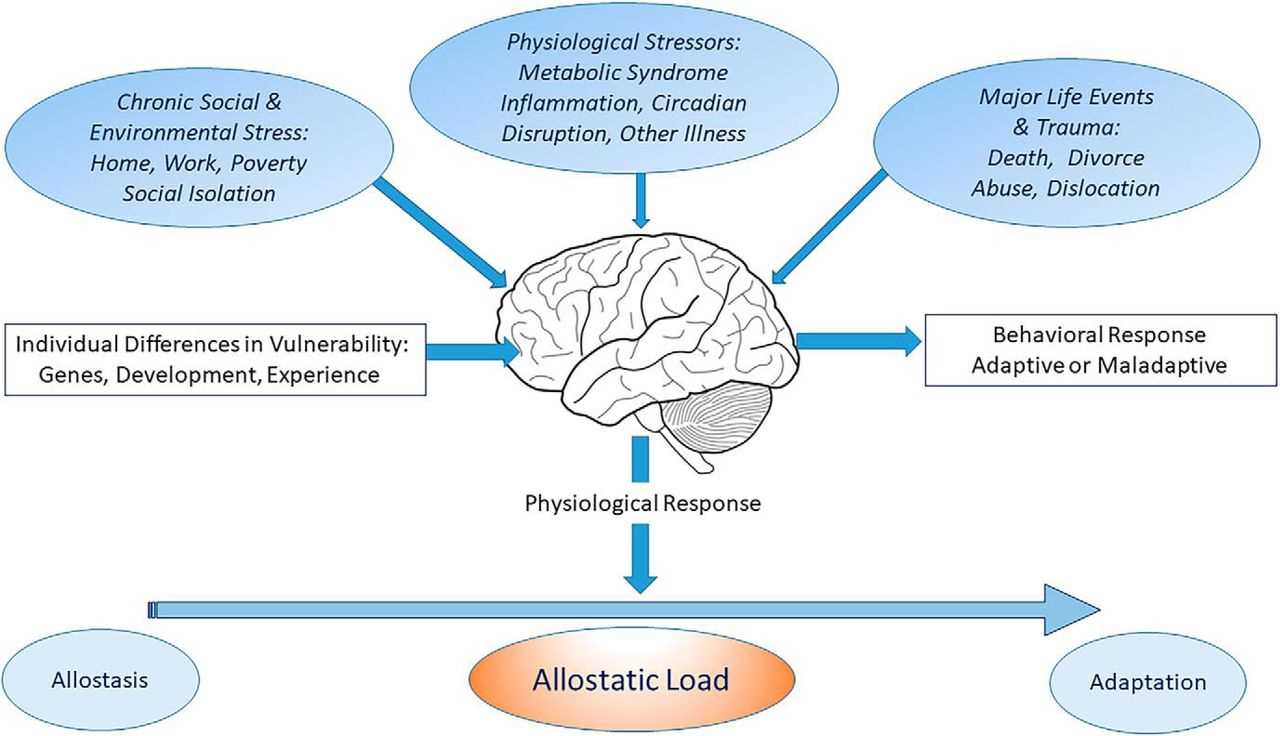Stress is a powerful force that can have a profound impact on our mental and physical well-being. In the context of depression, stress plays a central role in both the onset and progression of the disorder. However, not all individuals respond to stress in the same way. Some individuals are more susceptible to the negative effects of stress, while others are able to bounce back and maintain their mental health. This phenomenon is known as stress sensitization and stress resilience, and understanding these processes is crucial for developing effective interventions for depression.
Depression is a complex and multifaceted condition that affects millions of people worldwide. It is characterized by persistent feelings of sadness, hopelessness, and a loss of interest in activities that were once pleasurable. While there are many factors that contribute to the development of depression, stress is a major player. Research has shown that exposure to chronic or traumatic stress can increase an individual’s risk of developing depression.
Stress sensitization refers to the process by which an individual becomes more vulnerable to the negative effects of stress over time. This means that with each subsequent stressor, the individual’s response becomes more pronounced and the impact on their mental health becomes more severe. On the other hand, stress resilience refers to the ability to adapt and cope with stress in a healthy and productive way. Individuals who are resilient to stress are able to maintain their mental well-being even in the face of significant challenges.
Section 1: Exploring Stress Sensitization
In this section, we will explore the concept of stress sensitization and its relevance to understanding resilience and depression. Sensitization refers to the process by which an individual becomes more responsive to stress over time. This means that even small stressors can have a significant impact on a sensitized individual.
Stress sensitization is an important point of study because it helps us understand why some individuals are more prone to developing depression when faced with stress, while others are more resilient. By exploring the mechanisms behind sensitization, we can gain a greater understanding of how to prevent and treat depression.
Resilience, on the other hand, refers to an individual’s ability to bounce back from stress and adversity. While some individuals may be more susceptible to stress sensitization, others may possess a greater degree of resilience, allowing them to better cope with stressors and maintain mental well-being.
Depression is a complex mental health condition that can be influenced by a variety of factors, including genetics, environment, and stress. Understanding stress sensitization is crucial in unraveling the mechanisms behind depression and developing effective interventions.
Powerful research tools, such as neuroimaging and animal models, have allowed researchers to delve deeper into the intricacies of stress sensitization. By examining the neural circuits and molecular pathways involved in sensitization, we can gain insights into potential targets for therapeutic interventions.
In conclusion, exploring stress sensitization is vital for understanding the development of resilience and depression. By studying the mechanisms behind sensitization, we can identify novel approaches to preventing and treating depression, ultimately improving the lives of individuals affected by this debilitating condition.
The Impact of Stress on Mental Health

Stress is a powerful factor that can greatly affect mental health, particularly in relation to depression. When individuals experience high levels of stress, it can lead to the development or exacerbation of depressive symptoms. This is known as stress sensitization, where the brain becomes more sensitive to stressors and is more likely to respond with depressive symptoms.
On the other hand, some individuals are able to maintain their mental health and resilience in the face of stress. These individuals have the ability to adapt and cope with stress in a healthy way, which helps protect them from developing depression. This is known as stress resilience.
The impact of stress on mental health is multifaceted. It can disrupt the balance of neurotransmitters in the brain, such as serotonin and dopamine, which are involved in regulating mood. Additionally, chronic stress can lead to changes in brain structure and function, affecting areas involved in emotional processing and regulation.
Stress also affects other aspects of mental health, such as cognitive functioning. It can impair concentration, memory, and decision-making abilities, making it difficult to perform daily tasks and responsibilities. Furthermore, chronic stress can contribute to the development of anxiety disorders, substance abuse, and other mental health conditions.
Recognizing the impact of stress on mental health is crucial for understanding and addressing depression. By identifying stressors and implementing effective coping strategies, individuals can better manage their mental health and reduce the risk of developing or worsening depressive symptoms.
Unraveling the Mechanisms of Stress Sensitization
Stress is a powerful force that can have a significant impact on mental health. In individuals with depression, the effects of stress can be particularly debilitating. While some individuals are able to bounce back from stressful events with resilience, others may become sensitized to stress, leading to a worsening of depressive symptoms.
Understanding the mechanisms behind stress sensitization is crucial in order to develop effective interventions and treatments for individuals with depression. Research suggests that stress sensitization may occur due to a combination of genetic, neurobiological, and environmental factors.
Genetic factors play a role in determining an individual’s susceptibility to stress sensitization. Certain gene variants may make individuals more vulnerable to the negative effects of stress, while others may provide resilience. Identifying these genetic markers can help identify individuals at risk and inform personalized treatment approaches.
Neurobiological factors also contribute to stress sensitization. Chronic stress can lead to changes in the brain’s structure and function, particularly in areas involved in emotional regulation and stress response. These changes can make individuals more sensitive to stress and less able to cope with it effectively. Understanding these neurobiological mechanisms can provide targets for pharmacological interventions.
Environmental factors, such as childhood trauma or chronic stress, can also contribute to stress sensitization. Experiences of early-life adversity can shape the brain’s response to stress later in life, increasing vulnerability to stress-related disorders like depression. Identifying and addressing these environmental factors can help prevent the development of stress sensitization.
In conclusion, stress sensitization is a complex process influenced by a variety of factors. By unraveling the mechanisms behind stress sensitization, we can gain a better understanding of how to promote resilience and prevent the worsening of depressive symptoms in individuals with depression. This knowledge can guide the development of targeted interventions and treatments, ultimately improving the lives of those affected by stress and depression.
Identifying Risk Factors for Stress Sensitization

Understanding the risk factors for stress sensitization is crucial in developing strategies to promote stress resilience. Identifying these risk factors can help individuals and healthcare professionals to identify vulnerable populations and implement preventive measures.
One major risk factor for stress sensitization is the presence of chronic stress. Chronic stress refers to prolonged exposure to stressful situations, which can significantly impact an individual’s psychological and physical well-being. Power stress, such as abusive relationships or a demanding work environment, can be particularly detrimental.
Another risk factor for stress sensitization is a history of trauma or adverse life events. Individuals who have experienced traumatic events or adverse childhood experiences may be more susceptible to stress sensitization. These experiences can alter the brain’s response to stress, making individuals more sensitive to future stressors.
Genetics also play a role in stress sensitization. Certain genetic factors can influence an individual’s vulnerability to stress and their ability to cope with it. For example, variations in genes involved in the regulation of the stress hormone cortisol have been associated with increased risk of stress sensitization.
Additionally, individual characteristics such as personality traits and coping styles can contribute to stress sensitization. People who tend to have a negative outlook or who engage in maladaptive coping strategies, such as substance abuse or self-harm, may be more prone to stress sensitization.
Identifying and addressing these risk factors can help individuals build resilience to stress and reduce the likelihood of developing depression or other mental health disorders. By understanding the factors that contribute to stress sensitization, we can develop targeted interventions and support systems to help individuals effectively manage and cope with stress.
Section 2: Unveiling Stress Resilience
Resilience is a key point in understanding how individuals are able to withstand and recover from the power of stress. While stress can have detrimental effects on mental health, some individuals are able to bounce back and maintain their well-being.
Resilience refers to the ability to adapt and cope with stressors, allowing individuals to maintain a sense of balance and psychological well-being. It involves the capacity to recover quickly from stress and return to a state of emotional stability.
Research has shown that resilience is not a fixed trait, but rather a dynamic process that can be cultivated and enhanced. It is influenced by various factors, including genetics, environment, and individual coping strategies.
Understanding the mechanisms of resilience is crucial in developing interventions and strategies to promote mental well-being. By uncovering the factors that contribute to resilience, researchers can identify ways to enhance individuals’ ability to withstand stress and prevent the development of mental health disorders.
One important point to consider is the concept of stress sensitization. This refers to the idea that repeated exposure to stress can lead to an increased vulnerability to future stressors. In contrast, resilience acts as a protective factor, buffering against the negative effects of stress.
Studying stress resilience can provide valuable insights into how individuals can build their capacity to withstand stress and maintain their mental health. By understanding the power of resilience, we can develop strategies and interventions to help individuals thrive in the face of adversity.
The Concept of Stress Resilience
Resilience is a key factor in understanding depression and stress. It refers to an individual’s ability to adapt and bounce back from difficult situations. In the context of depression, resilience plays a crucial role in determining whether someone will develop the disorder or be able to withstand the stressors that contribute to it.
Stress is a powerful force that can have a significant impact on mental health. It can lead to the development of depression and other mood disorders. However, not everyone who experiences stress will go on to develop these conditions. This is where the concept of stress resilience comes into play.
Stress resilience refers to an individual’s ability to withstand and recover from the negative effects of stress. It involves a combination of genetic, environmental, and psychological factors that contribute to an individual’s ability to cope with stressors.
Research has shown that individuals with high levels of stress resilience are more likely to be protected against the development of depression. They are able to adapt and bounce back from stressful situations, maintaining their mental well-being. On the other hand, individuals with low levels of stress resilience may be more susceptible to the negative effects of stress and more likely to develop depression.
Understanding the concept of stress resilience is crucial in the study and treatment of depression. By identifying factors that contribute to resilience, researchers and clinicians can develop interventions and strategies to enhance stress resilience and prevent the development of depression.

I am Patrina de Silva, a psychologist and mental health blogger in Sri Lanka. After obtaining psychology degrees from the University of Colombo and Monash University, I returned home to work as a counselor while also starting the popular blog “Pressy but Happy” to provide advice on psychological issues. Over the past decade, my empathetic articles have made my blog a leading mental health resource in the country. In addition to writing, I maintain a private therapy practice, frequently volunteer counseling time, and conduct seminars, driven by my passion for destigmatizing mental illness and educating the public on the mind-body connection. I strive to be an influential voice in my field through my compassionate approach.
